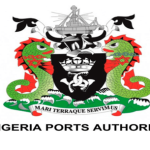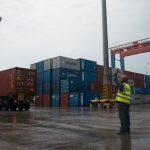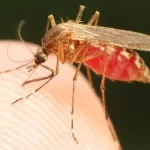Despite a high prevalence of sickle cell disease, SCD, in Nigeria, affecting 2-4 percent of newborns, Nigeria currently lacks a national policy for newborn screening. With this development, most infants go undiagnosed until they present symptoms, often leading to delayed treatment and potentially poorer health outcomes.
Among identified hurdles are limited funding and government capacity to implement a national screening programme. Currently, diagnosis relies on children exhibiting symptoms and then undergoing expensive tests and typically only available at teaching hospitals, creating a barrier to access for many Nigerians.
The National Director and CEO of the Sickle Cell Foundation Nigeria, SCFN, Dr. Annette Akinsete, stressed the importance of legislation to accompany screening guidelines for sickle cell disease.
Speaking at the handover ceremony of four new Trans-Cranial Doppler, TCD, machines, Akinsete, a public health physician, emphasized the need for enforceable laws.
She said screening guidelines are valuable, but without laws with clear consequences, their effectiveness is limited, noting that there are existing policy documents outlining treatment protocols, yet these often lack enforcement mechanisms.
Akinsete pointed to the example of free treatment for children with sickle cell disease starting at age five, a policy currently not uniformly implemented. “Legislation is crucial to ensure such policies are upheld,” she declared.
She commended the donation of the TCD machines by the Covenant Medical Group Global Foundation, CMG, the Association of Nigerian Physicians in the Americas, ANPA, and the Rotary Club of Lekki Phase 1. The machines replace the facility’s aging TCD machine, which had performed nearly 30,000 scans since 2011.
Highlighting the crucial role of the machines in preventing strokes for children with sickle cell disease, Akinsete described them as a game-changer.
“This painless procedure uses a probe placed on the child’s temple. Skilled technicians, trained in ultrasound technology, use the machine to measure blood flow velocity in the brain’s major vessels. This information helps us identify children at high risk of stroke.
“Early detection is key. High-risk children can then receive targeted treatments like hydroxyurea or blood transfusions, significantly reducing their stroke risk. A stroke can devastate a family, so prevention is paramount. These machines are vital in achieving that goal.
“Early detection is key. Stroke is a serious risk for children with sickle cell disease. In fact, for any child with a stroke, sickle cell is a prime suspect until proven otherwise. Therefore, TCD scans are crucial for all children with sickle cell disease between age 2 and 16.
“This is because this screening can help us identify those children who are at high risk, and then we can just pull them out and put them on preventative treatment and then they will not come down with stroke. This is so important because when a child has stroke in the family, it’s associated with higher mortality, higher morbidity, but we can prevent it with this equipment.”
She averred that, well managed, children with sickle cell can live normal, productive lives and contribute meaningfully to their communities.
“This is our target, that’s our goal for those who have sickle cell. For those who are on the end of the spectrum, we’re also doing all we can to prevent sickle cell from even happening in the first place.”
Regretting that Nigeria is the sickle cell capital of the world, Akinsete said that out of 150,000 babies born every year in Nigeria, over 100,000 die before they are five years old, but was optimistic such children can be kept alive if infections are prevented.
On her part, a founding member of the CMG and member of ANPA, Dr Ngozika Orjoke, said they got into a partnership with a company that trains in ultrasound dopplers, and went ahead and purchased the first unit.
“The goal is to be able to purchase enough units, that every geopolitical area in this nation should have a unit such that, every child that is at risk for a stroke from sickle cell disease will get that preventative ultrasound that will signal that this child is at risk and so people like Professor Akinsete can begin to do the things they need to prevent it from happening.
“The Sickle Cell Foundation in Atlanta is very interested in partnering with the Sickle Cell Foundation in Nigeria to see what else we can do. We can do childhood screening as soon as a child is born, regardless.
“I really believe we should engage the government in dialogue. Screening every newborn for sickle cell disease is good, it there is a policy where we say every person should be screened, and also make sure that couples get tested before they get married.” In the view of the President of the Rotary Club of Lekki Phase 1, District 9110, 2003-2004, the issue of sickle cell is prevalent, particularly in Nigeria and West Africa.
“When we got to know about this from the SCFN, we were moved to see how we could assist. We all know that out of 150 children with SCD that are born in Nigeria, 100 die before they get to the age of five and we felt that we need to do so much to support humanity and ensure that our children live. That is the essence why we decided to source for this machine called Trans-Cranial Doppler.
“This is used to assess children with sickle cell, especially when they are about to have a crisis, and also stroke. It helps in management of this disease, so that’s why we were further involved. And the plan for the Year 2022-2023 was to get a machine across to the Foundation so that they can assist in managing the crisis with sickle cell children.
“We had donors that have come forth through the ANPA, they’re able to reach out to donors that gave us not just one but four of these machines, so it’s going to go a long way to prevent crisis with the sickle cell children.
“Each of the machines cost roughly $20,000, so with the four that are being made available today, are about $80,000 or about N80 million, at the minimum,” he remarked.








